Over the past year, the collective effort of the public, private, and civil society sectors has made significant progress in driving the “Accelerating Changes Towards Low Carbon Society” initiative. All parties have embraced a new mindset of “open collaboration,” aligning under a common goal, communicating transparently, and working directly in the field. This approach has unlocked new efficiencies and delivered tangible results, aligned with the four proposals from the ESG Symposium 2023. These include the creation of Thailand’s first low-carbon model city, “Saraburi Sandbox”; the promotion of green construction using Low Carbon Cement; private sector collaboration on managing used packaging through Closed-Loop Recycling initiatives; and support for SMEs to access knowledge and transition their businesses towards low-carbon operations through the Go Together project. This year, over 3,500 participants from many sectors will continue to drive the country’s transition to a low-carbon society at the ESG Symposium 2024, to be held on September 30 at the Queen Sirikit National Convention Center.
Thammasak Sethaudom, President & CEO of SCG, said, “I would like to thank all sectors—government, private, and civil society—for their collaboration over the past year in tackling the nation’s challenging mission of accelerating Thailand’s transition towards a low-carbon society. This effort began with a brainstorming session involving over 500 stakeholders at the ESG Symposium 2023, resulting in four key proposals to address the global climate crisis. Significant progress has been made, such as upgrading the domestic cement industry standards to Low Carbon Cement to replace Portland cement, and promoting sustainable agriculture by encouraging farmers to grow Napier grass for conversion into alternative energy. Other initiatives include supporting alternating wet and dry rice farming to reduce water usage, fertilizers, and carbon emissions, and driving efficient resource management aligned with the circular economy concept through the expansion of the “Tan Diao Model” as well as through the establishment of waste banks and wet waste compost bins to mitigate climate change, strengthened networks of 38 community forests to exchange knowledge, transformed these areas into vital food sources for communities, and extended into eco-tourism. The installation of Solar Carports at the Saraburi Government Center is set to expand to other agencies. The Go Together project aims to educate SMEs on transitioning their businesses to low-carbon models, with over 80 participants in the first class out of 20 planned classes nationwide for 2024-2025, targeting to equip 1,200 SMEs with knowledge to combat global boiling. Meanwhile, the Closed-Loop Circular Products, a partnership between HomePro and SCGC, exemplifies the recycling of used electrical appliances through a closed-loop system. Despite encountering obstacles in some projects, such as Grid Modernization for smart electricity networks to support the open market for clean energy trading, and facilitating SMEs’ access to green finance, both domestically and internationally, the commitment to overcome these challenges continues, aiming to accelerate progress in sustainable operations.
The above progress has been achieved through a shift in mindset, emphasizing integrated work through open collaboration, driven by three core principles: 1) Same Goal, which is to transform Thailand into a low-carbon society in line with the Nationally Determined Contribution (NDC) Roadmap; 2) Open Communication, which encourages open, constructive, and straightforward discussions to unlock barriers encountered during the work process; 3) Hands-on Implementation, which involves engaging actively on the ground to understand the situation, limitations, and needs of other parties, and then adjusting work methods to best meet the shared goals. This approach enhances efficiency and speeds up the work process. Going forward, all sectors remain committed to accelerating the implementation of every project to make a low-carbon society a reality in Thailand.”
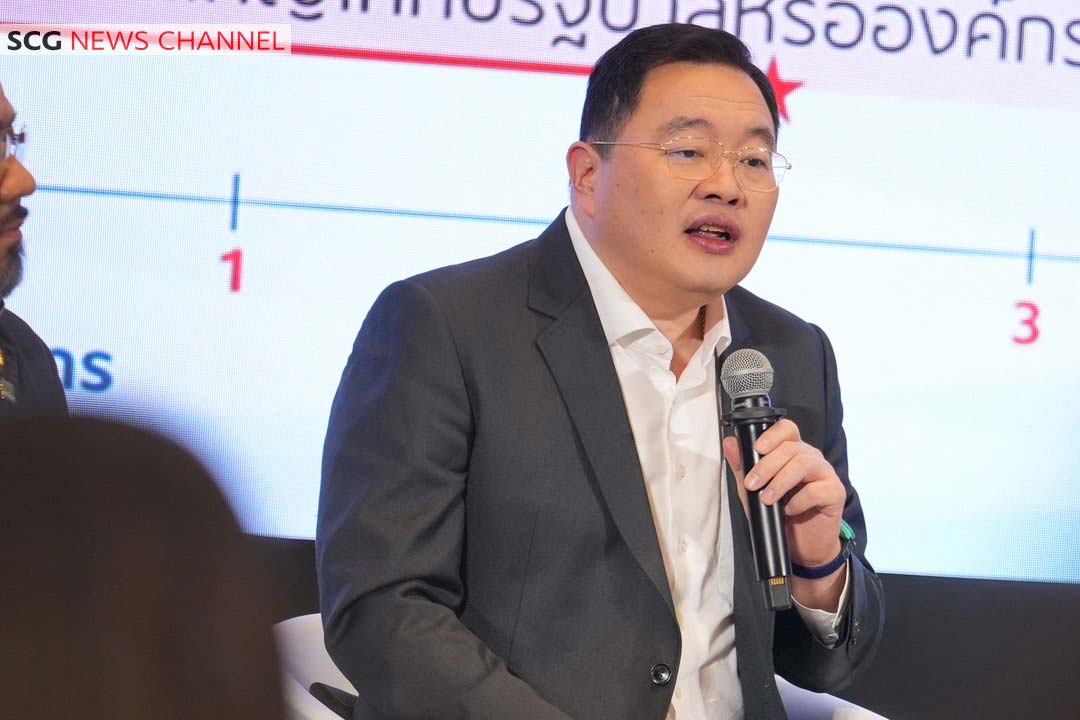
Bancha Chaowarin, Governor of Saraburi Province, said, “Transforming Saraburi, an industrial hub of the country, into Thailand’s first low-carbon city is a significant challenge, but we have achieved it through the PPP or Public-Private Partnership model, where all sectors share the same goal and are committed to driving progress together. This is evident in the integration of circular economy principles to manage waste throughout the province. For instance, the waste bank project, led by local administrative organizations, supports communities in sorting household waste at the source. Currently, all 108 local administrative organizations are participating, resulting in the establishment of 123 waste bank funds. This initiative not only reduces the cost of waste collection and disposal for local governments but also fosters community involvement. The wet waste compost bin project has been awarded carbon credits equivalent to 3,495 tons of CO2 by the Thailand Greenhouse Gas Management Organization (TGO), generating nearly one million baht in income for the community. Furthermore, the promotion of energy crops such as Napier grass for conversion into biomass fuel, replacing fossil fuels, has been made possible by educating farmers and acting as a mediator to connect them with the industry to ensure secure income. Currently, over 100 rai of Napier grass is being cultivated in Kaeng Khoi District, Saraburi. It is expected to produce 2,100 tons of alternative energy, generating 2.5 million baht in annual income for farmers and reducing carbon emissions by 2,500 tons of CO2 equivalent.”
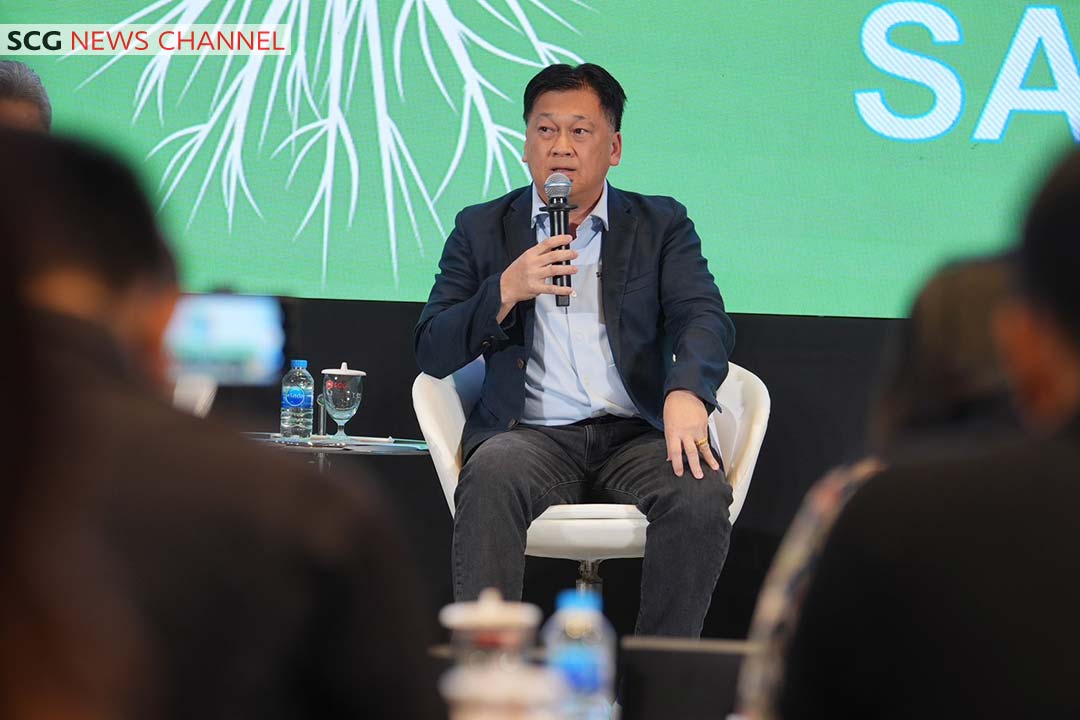
Chana Poomee, Chairman of the Thai Cement Manufacturers Association (TCMA), said, “Over 80% of the country’s cement production capacity is based in Saraburi, making it the home of the cement industry. We aim to improve our home by collaborating with all sectors to transform Saraburi into Thailand’s first low-carbon city. Our efforts began with the development of Low Carbon Cement (Hydraulic Cement), which reduces carbon emissions during production and promotes its use in public construction projects. Currently, over 80% of cement used in place of Portland cement is Low Carbon Cement, resulting in a reduction of carbon emissions by 1,169,673 tons of CO2 (data accumulated from January 2022 to March 2024). This progress is crucial in meeting Saraburi’s goals, and Thailand aims to become the first country in Asia to eliminate Portland cement by 2025. We also plan to introduce new types of Low Carbon Cement that further reduce emissions during the production process. To advance the transition to clean energy, we have partnered with Princeton University, which has the expertise and tools to develop the Energy Transition Plan for the United States. Together, we have assessed the baseline greenhouse gas emissions in the energy sector and established an Energy Roadmap for Saraburi Province. Additionally, we are evaluating the potential for using land in the province for clean energy solar PV projects to expedite implementation and reduce costs. Furthermore, there is an urgent need to develop green infrastructure to support the country’s transition to clean energy. We are studying China’s phased energy transition model, which facilitates the clean energy transition in industries based on their readiness, and Taiwan’s example of a daily electricity auction structure. We are currently collaborating with both countries on the development of Grid Modernization within the Saraburi Sandbox.”
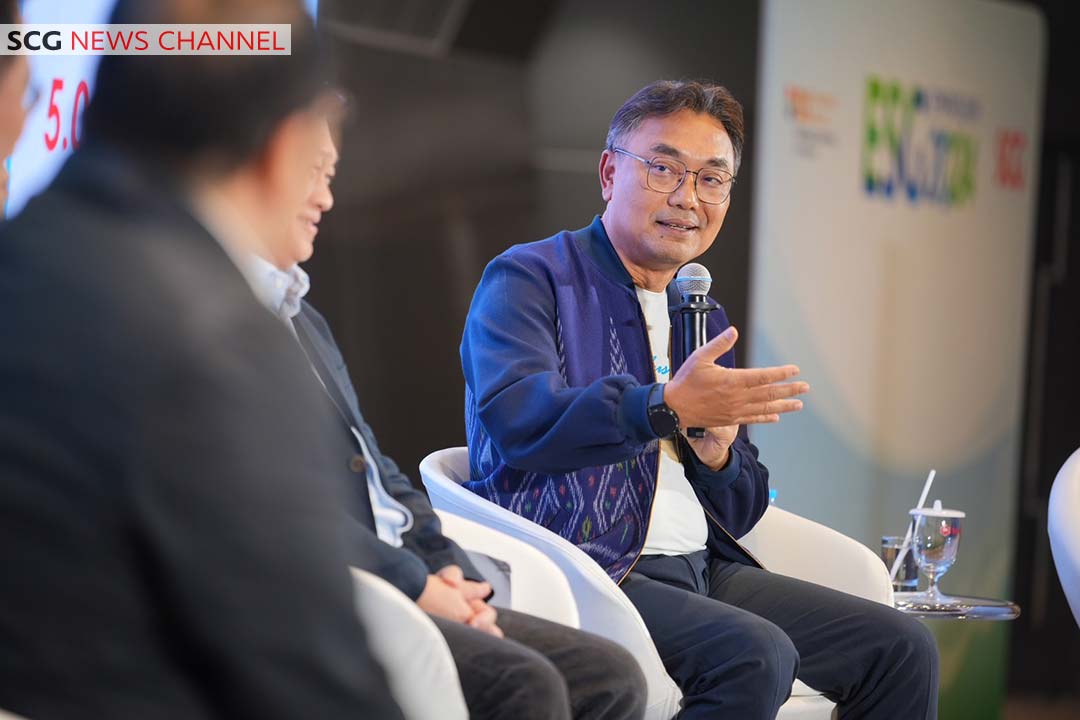
Weerapun Ungsumalee, Managing Director of Home Product Center Public Company Limited, said, “As a leader in home solutions, HomePro recognizes the needs of consumers who wish to replace household items but are unsure about how to properly manage used products. This led to the initiation of the Closed-Loop Circular Products project, which involves the proper management of used items from HomePro customers. By sorting and recycling components that can be reused, we have partnered with environmentally conscious partners like SCGC, which shares our commitment to sustainable development. Together, we have developed a high-quality recycled plastic formula known as Green Polymer, which is used to produce eco-friendly products for HomePro customers. Currently, HomePro offers Circular Products, including appliances such as refrigerators, water heaters, and fans, as well as tiles, multipurpose boxes, shopping bags, and more. Promoting Circular Products through the Closed-Loop system is a concrete step towards achieving HomePro’s goal of carbon neutrality by 2050.”
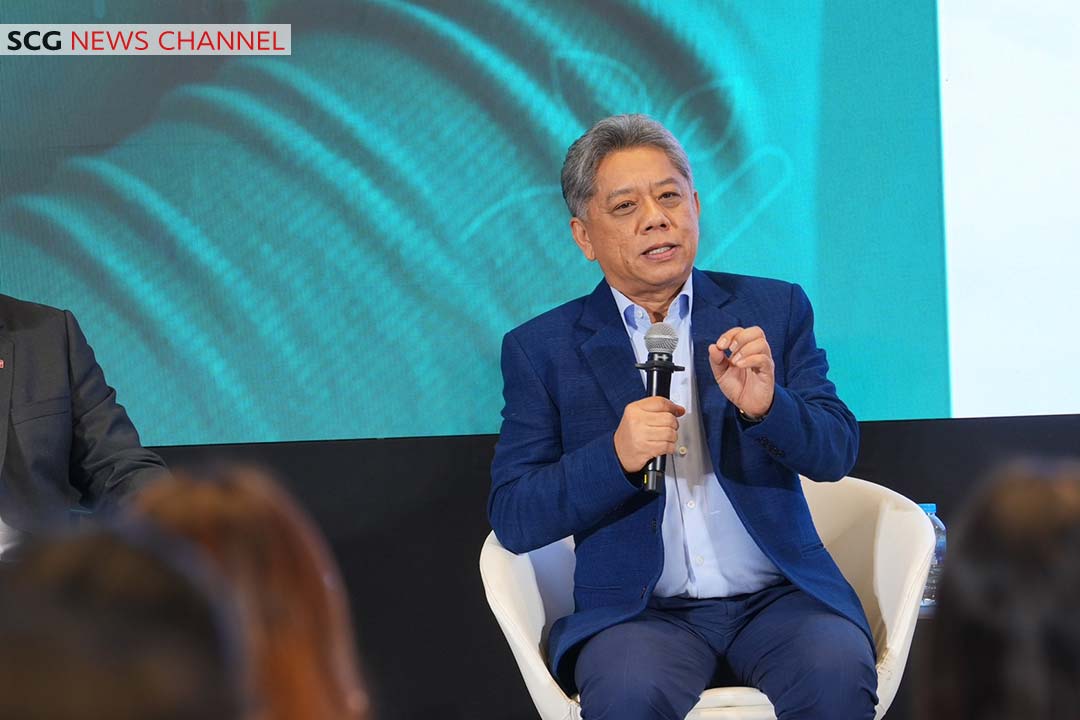
Sangchai Theerakulwanich, President of the Federation of Thai SMEs, said, “The next challenge for small business owners in Thailand is adapting their businesses to meet new regulations arising from environmental concerns and changing climate conditions. These include the Thailand Taxonomy, which sets standards for classifying environmentally friendly economic activities, and the European Union’s Carbon Border Adjustment Mechanism (CBAM), which serves as a trade barrier. Businesses that can adapt quickly will overcome these limitations and ensure their survival sooner. So, the Federation of Thai SMEs supports SMEs in accessing knowledge, new standards, green production technologies, and green finance both domestically and internationally to help adjust their businesses. We focus on creating systematic linkages that enhance opportunities to access and benefit from measures, including financial support, knowledge promotion, digital technology use, innovation, and marketing both domestically and abroad. In addition, support from the government is crucial to help SMEs elevate the grassroots economy towards sustainability.”
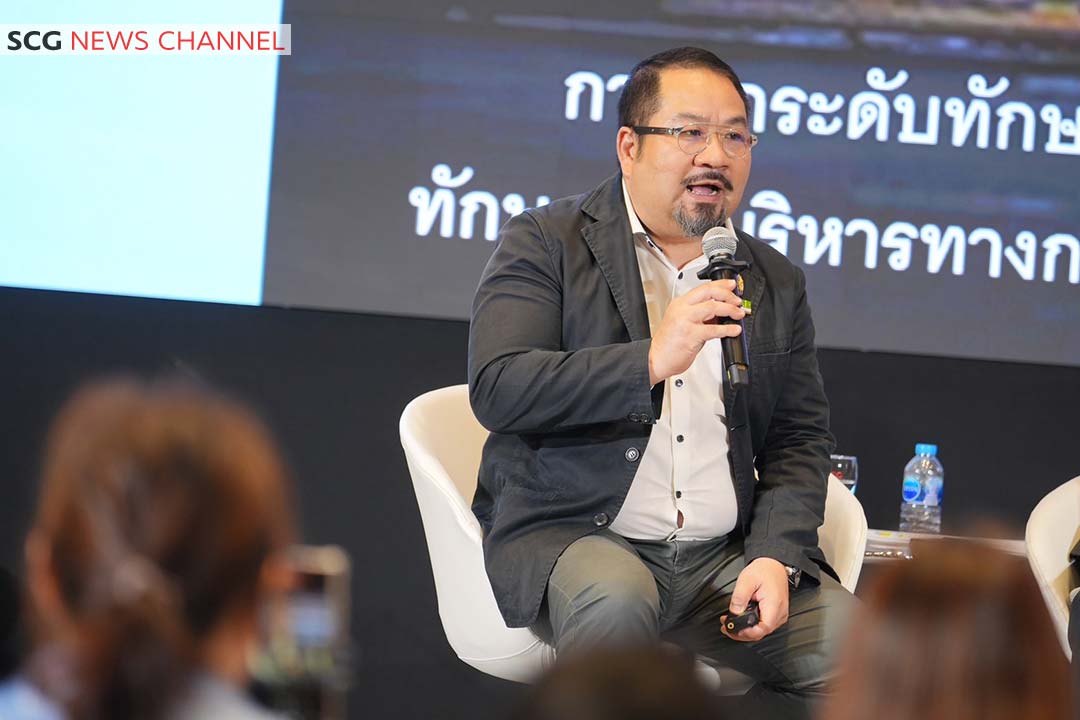
Thammasak added, “The transition towards a low-carbon society not only helps mitigate the severity of the global climate crisis but also enhances the competitiveness of businesses and the country, particularly in the current economic downturn and highly competitive market due to imports from China. The enforcement of CBAM will impact manufacturing, import, and export sectors of carbon-emitting products. So, we must accelerate the transition of our country into a low-carbon society while simultaneously building competitiveness through other means. This year, all sectors have come together to organize the ESG Symposium 2024 under the theme ‘Driving Inclusive Green Transition.’ The event will present proposals from discussions among stakeholders across five key areas: 1) Saraburi Sandbox – Thailand’s first low-carbon city model; 2) Circular Economy – Maximizing the efficient use of resources through recycling; 3) Just Transition – Providing support and resources to sectors undergoing the transition; 4) Technology for Decarbonization – Developing technologies to reduce carbon dioxide emissions; and 5) Sustainable Packaging Value Chain – Managing the entire packaging value chain sustainably. These proposals will be presented to the government to jointly accelerate Thailand’s transition towards a low-carbon society faster than ever before.”
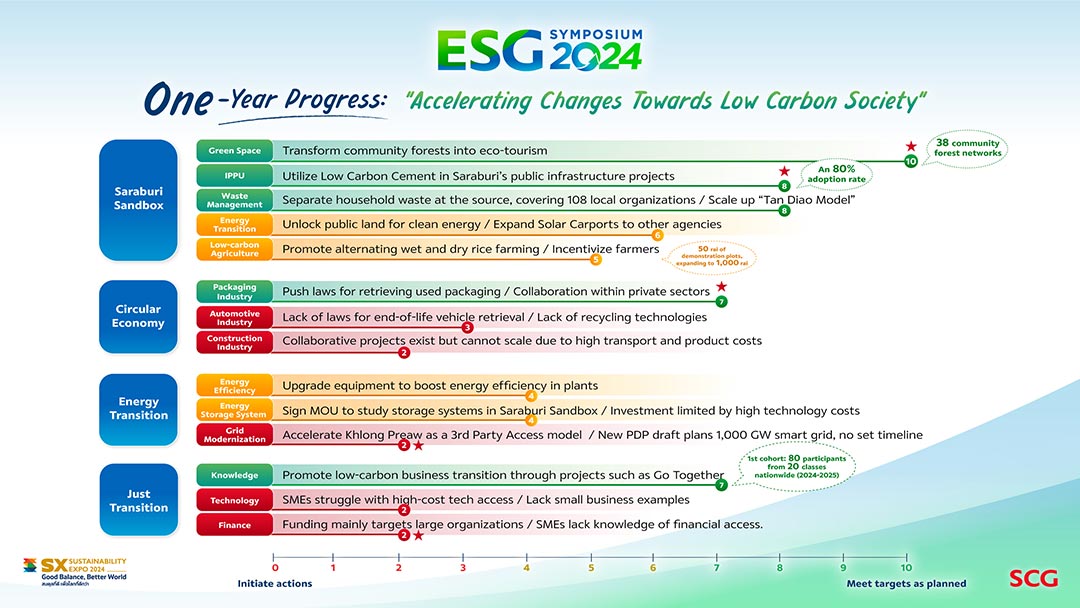
The ESG Symposium 2024 will be held on September 30 at Hall 1, G Floor, Queen Sirikit National Convention Center, from 11:00 AM to 4:30 PM. The event will feature world-class speakers who will share their experiences and best practices in transitioning countries towards low-carbon societies. Participants can also explore an exhibition showcasing low-carbon living. The event will be live-streamed on SCG’s Facebook and YouTube channels. For more details, visit www.scg.com.
Published on: Sep 20, 2024
 ดาวน์โหลดข่าว
ดาวน์โหลดข่าว